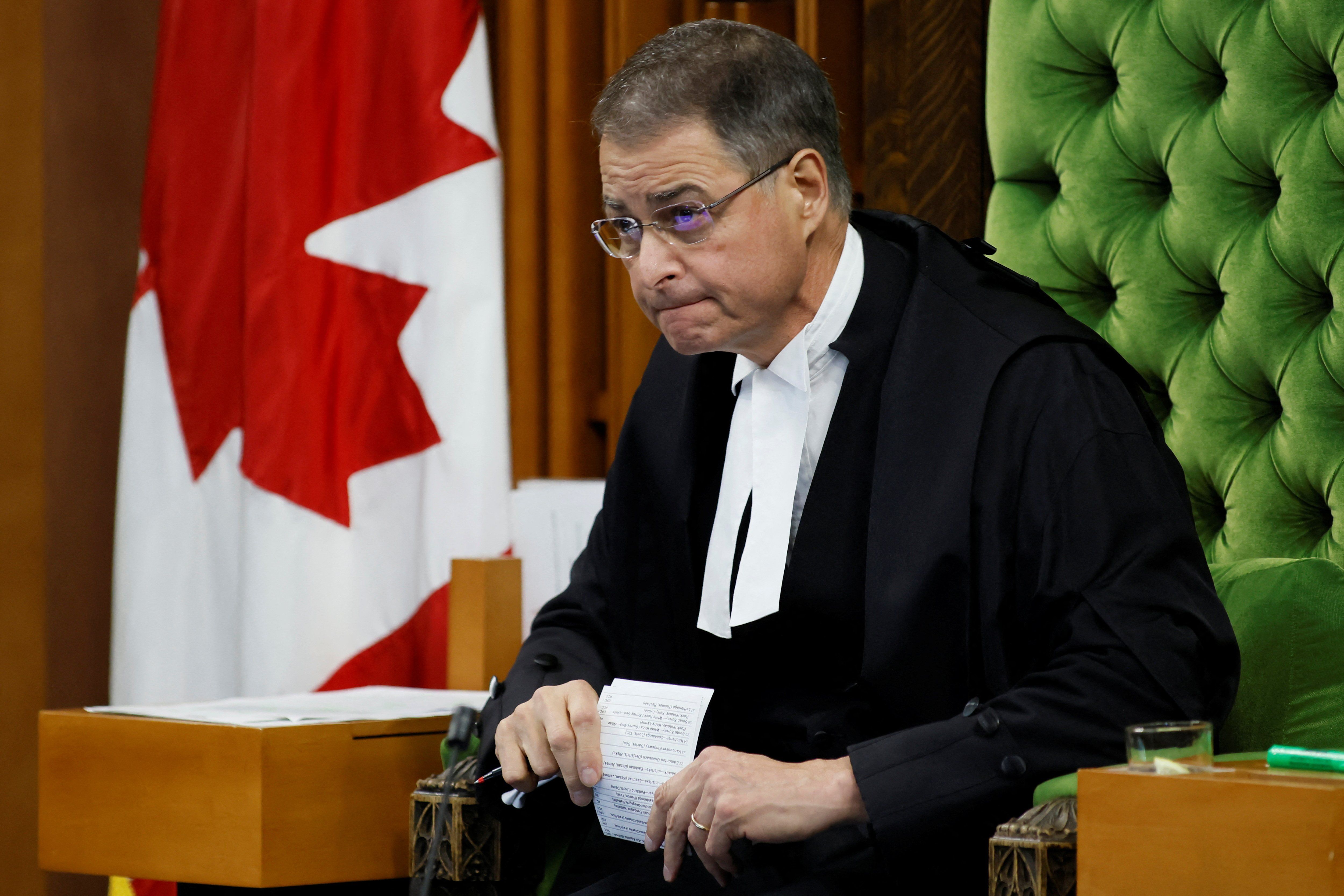It’s been an extraordinary few weeks for speakers in both the House of Representatives and the House of Commons.
One is fighting to keep his job; the other just resigned.
US House Speaker Kevin McCarthy is trying to navigate between the shoals of the Democrats and far-right Republicans. His hold on the speakership was tenuous from day one, but with a government shutdown looming, and a continuing resolution to keep it operating seemingly out of reach, at least for now, he’s facing a tough struggle to hold onto the gavel.
North of the border, House of Commons Speaker Anthony Rota resigned on Tuesday after welcoming Nazi war veteran Yaroslav Hunka to parliament, calling him “a Canadian hero” and “a Ukrainian hero” and thanking him for his service.
Hunka was in the visitor’s gallery during Volodymyr Zelensky’s speech to the joint session of parliament. Rota introduced Hunka as having fought against Russia during World War II, apparently unaware this meant he had fought for Nazi Germany. Rota apologized and took responsibility for the invitation before resigning.
On Wednesday, PM Justin Trudeau offered his own apology for the harm caused by Hunka’s visit. The House of Commons will choose a new speaker next Tuesday by secret ballot.
We’re watching to see if a new Canadian speaker can restore trust and authority to the speakership – and maybe a bit of decorum in the raucous House. Meanwhile, McCarthy will be working to get his far-right caucus on side to pass a bill to fund the government and end the shutdown that is set to begin Sunday. Could this blow up and cost McCarthy his role as speaker?
Clayton Allen, US director for Eurasia Group, doesn’t think so. He says McCarthy “hasn’t lost his ability to govern the House,” though he’s facing the worst internal divisions and narrowest margin of control in “at least a decade.” While it’s “a bit of a parlor game in Washington to speculate about McCarthy’s downfall … the risk is somewhat overstated,” since his removal would require majority support, including all Democrats.
